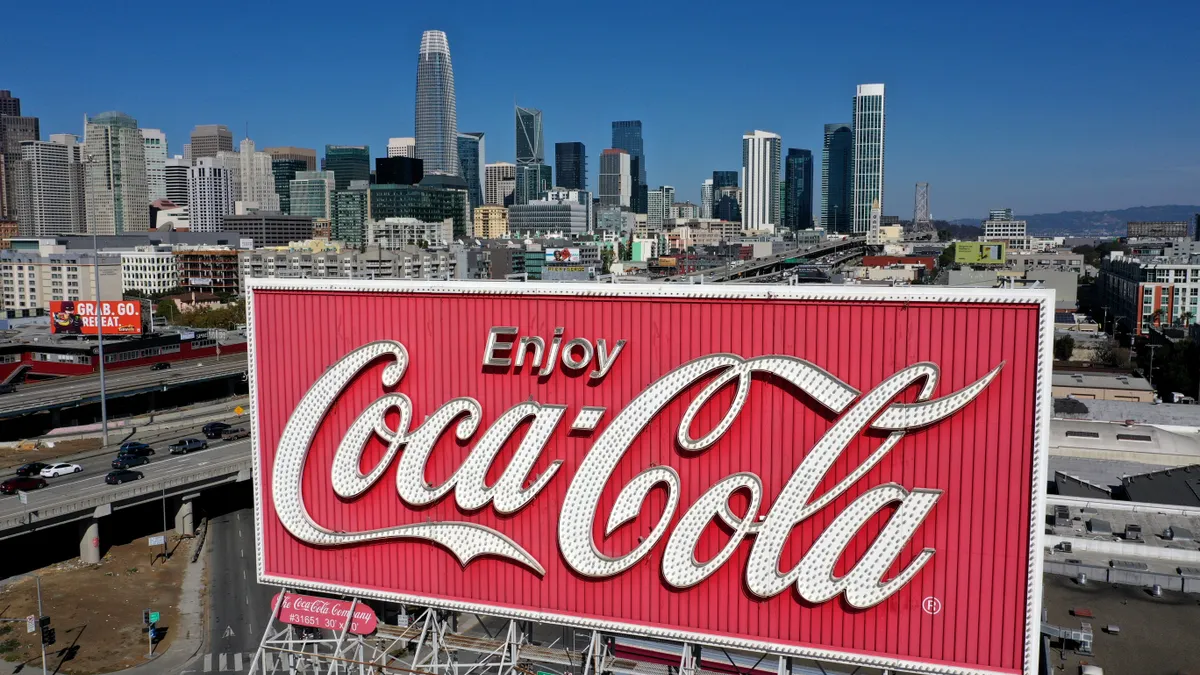Dive Brief:
- Coca-Cola is the first marketer to take advantage of a new partnership between management consultancy Bain & Company and OpenAI, the developer of artificial intelligence (AI) software like ChatGPT, according to a press release.
- Coke will leverage tools like ChatGPT and DALL.E, a digital image generator built on deep learning, to enhance its marketing and improve operations. Potential use cases for brand marketers highlighted in the announcement include more personalized advertising copy and targeted messaging.
- Zack Kass, OpenAI’s head of go-to-market products, said in a statement that Coke’s strategy with AI is the “most ambitious” his firm has yet seen from a consumer goods company. AI has quickly risen to be one of the most-watched technologies in marketing this year, though ethical and implementation questions remain.
Dive Insight:
AI’s ascendance as a leading area of investment continues with the Bain and OpenAI deal. Coke is one of the most recognized packaged goods marketers globally, meaning that its early adoption of OpenAI solutions could further accelerate the trend while producing practical use cases of the budding technology as it relates to marketing.
“We are excited to unleash the next generation of creativity offered by this rapidly emerging technology,” said James Quincey, chairman and chief executive of The Coca-Cola Company, in a statement.
In the press release and an accompanying video, an executive from Bain described AI as being at an “inflection point.” Bain has been integrating OpenAI’s offerings into its internal systems for the past year, per the announcement.
“We see this as an industrial revolution for knowledge work, and a moment where all our clients will need to rethink their business architectures and adapt,” said Manny Maceda, worldwide managing partner at Bain, in a statement around the OpenAI alliance.
ChatGPT only went live to the public in November, but it has pushed discussions of AI firmly back into the mainstream, with breathless media coverage and investors raising more questions about how much of a game-changer the category could be. Microsoft, which previously worked with OpenAI, announced an additional $10 billion investment in the startup last month. The tech giant has implemented OpenAI’s large language solutions into Bing and its Edge browser amid a freshly mounted search war with Google.
Maceda added that the collaboration with OpenAI will give Bain direct access to AI models that can be used to tailor digital services for clients. In Coke’s case, that seems like it will manifest in personalized advertising that is reliant on copy and images created with the help of automation, along with unlocking some new operational efficiencies. The release also suggested AI could help categories like retail banks, telecommunications and utility companies with customer service through real-time scripting, or financial advisors with productivity and communication with clients.
Dizzying hype around AI has been complemented by some renewed skepticism. Solutions like ChatGPT still get a lot of things wrong but can express misinformation confidently or behave in odd ways. Microsoft recently limited the amount of chat interactions users could have with its Bing AI after long conversations led to off-putting results. Artists have also decried tools like DALL.E, which are often trained on human-made images, raising questions around ethics and ownership.















